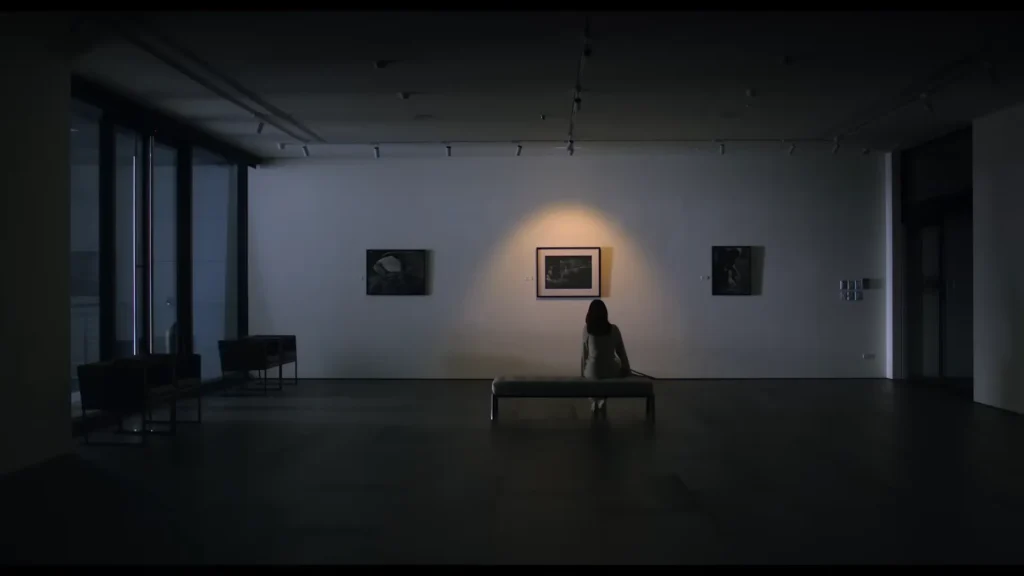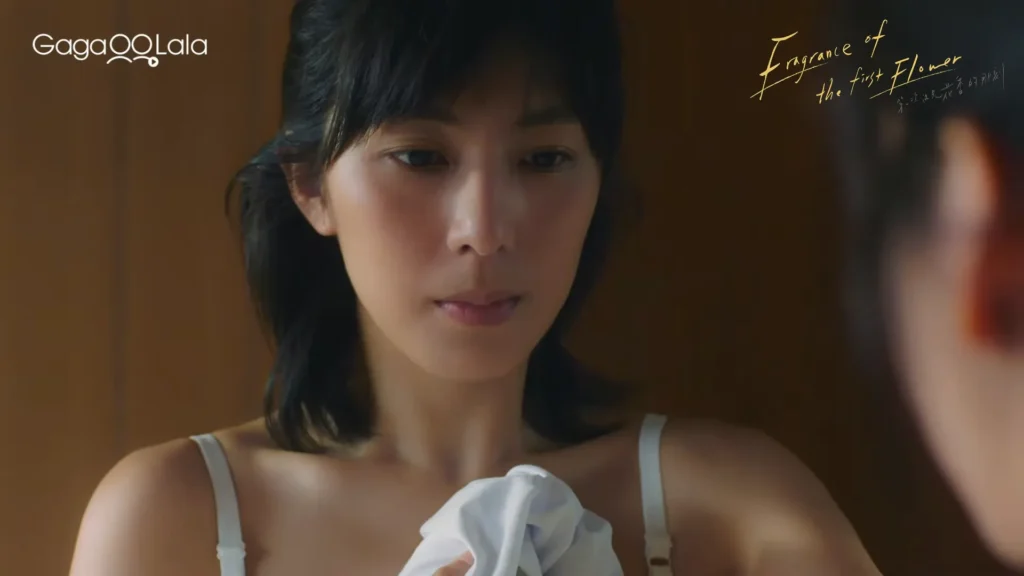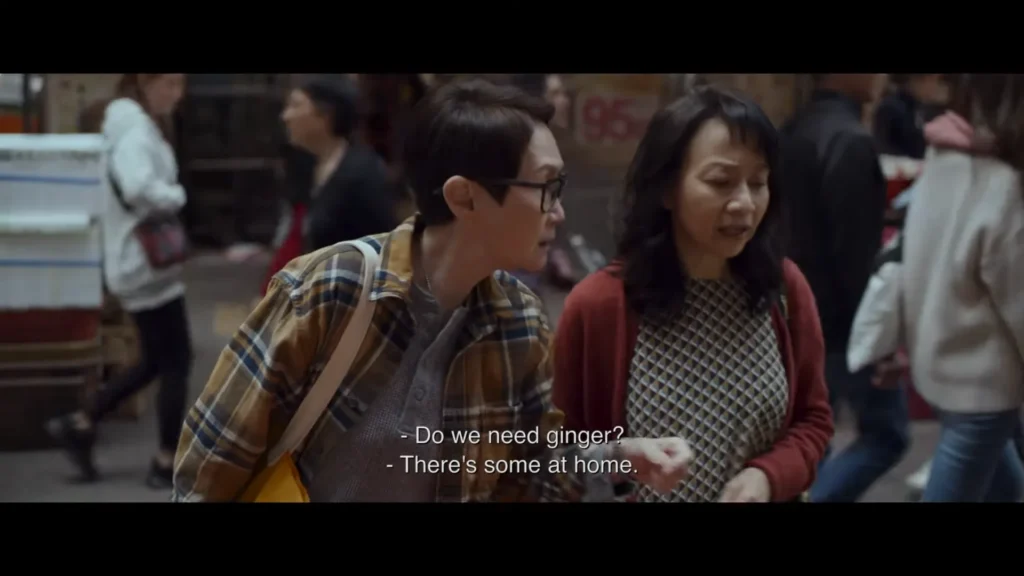Hey queer fam! After exploring the best Korean GL dramas and falling in love with Thai GL series, today I want to take you through an incredible journey of Chinese lesbian cinema. I’ve collected 22 must-watch Chinese lesbian movies and shows that showcase the evolution of sapphic storytelling in Chinese-language cinema. Let’s dive in chronologically from the newest to the classics!
In This Article
Chinese Lesbian Movies & Dramas
Blind Love (2025)
🎬 Release Year: 2025
📺 Where to Watch: Film Festival Circuit
✨ A provocative psychological transformation story
👀 Why It’s Worth Watching: This highly anticipated film marks actress Ariel Lin’s debut as both executive producer and lead actress. Based on award-winning author Liu Zijie’s novel and directed by Zhou Meiyu, “Blind Love” tells a provocative story of forbidden desire and psychological transformation.
The narrative follows a woman with a seemingly perfect family life whose world is turned upside down when she unexpectedly reconnects with her first love – her former high school senior. As their rekindled relationship intensifies, what starts as a small seed of obsession begins to grow uncontrollably.
The film takes a fascinating turn when the protagonist suddenly loses her vision – not just of her lover’s face and her own hands, but of everything around her. This physical blindness serves as a powerful metaphor for the blurring lines between right and wrong, reality and desire. The intimate scenes are described as deeply sensual: “They kiss and cradle each other, everything feeling so beautiful and intimate.”
What makes this film particularly exciting is its commitment to presenting a female perspective on desire and sexuality. With Ariel Lin’s involvement both behind and in front of the camera, we can expect a nuanced exploration of complex themes like marriage, sexuality, and personal identity. The combination of psychological thriller elements with sapphic romance promises to bring something fresh to Chinese lesbian cinema.
Fragrance of the First Flower Season 1-2 (2021-2025)
🎬 Release Years: 2021-2025
📺 Where to Watch: GagaOOLala
✨ A groundbreaking series about rediscovered love
👀 Why It’s Worth Watching: This groundbreaking series explores the complexities of rediscovered love through the story of Yi-ming (Lin Chen-xi), a married mother whose life is disrupted when she reunites with her high school junior Ting-ting (Tseng Yu-hsi). What began as an intense friendship in their school days threatens to become something more when they meet again as adults.
The series brilliantly captures the tension between societal expectations and personal desires, especially within the context of traditional Asian family values. As Yi-ming navigates her feelings for Ting-ting while trying to maintain her family life, the show raises powerful questions about identity, duty, and the true meaning of happiness. Season 2 is coming in 2025, promising to further explore these compelling themes.
🔍 Similar Recommendations:
- Explore Age-Gap Lesbian Romance
All Shall Be Well (2024)
🎬 Release Year: 2024
📺 Where to Watch: Film Festivals, Limited Theatrical Release
✨ A moving film about long-term love and loss
👀 Why It’s Worth Watching: Set in contemporary Hong Kong, this moving film follows a lesbian couple who’ve shared forty years of life together. When one partner suddenly passes away, the survivor must confront not just her grief but also her partner’s family members who begin challenging their shared property rights.
The film masterfully weaves together personal loss with larger social issues, using the couple’s story to examine both LGBTQ+ rights and Hong Kong’s housing crisis. Through intimate domestic scenes and tense family confrontations, it shows how queer relationships often face unique challenges even after decades together. The film’s Berlin Film Festival Teddy Award recognition highlights its significant contribution to global queer cinema.
🔍 Similar Recommendations:
- Check Out Asian Queer Cinema
Who’ll Stop the Rain (2023)
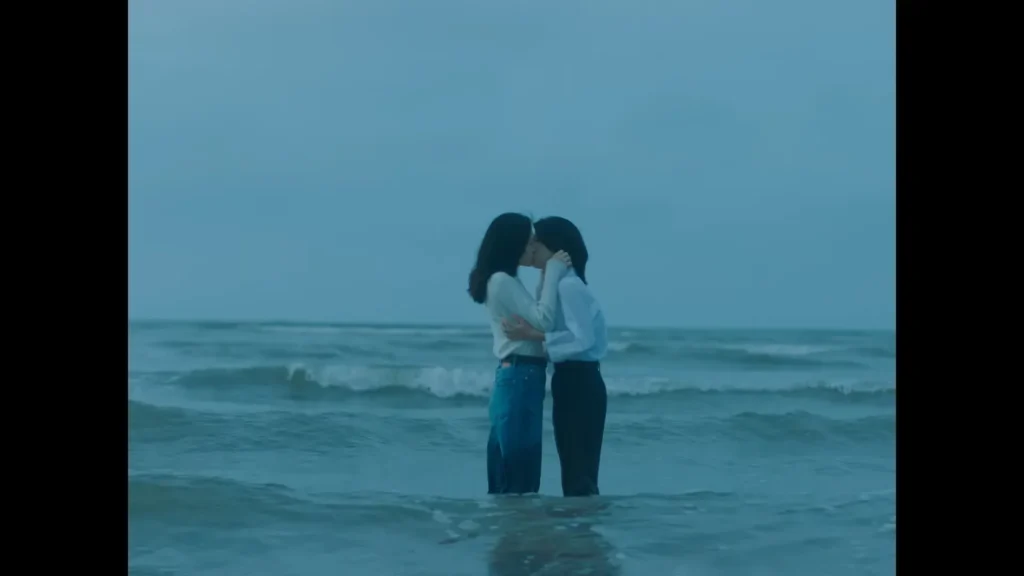
🎬 Release Year: 2023
📺 Where to Watch: Film Festivals, BFI Flare
✨ A coming-of-age story set against student activism
👀 Why It’s Worth Watching: Set against the backdrop of university politics, this film weaves together themes of student activism and unexpected love. The story follows Ji Wei, an outspoken and bold art student, who becomes involved in her department’s student council protest against the school administration and their teaching methods.
The dynamic shifts when Ji Wei meets Wei Qing, a non-art major who’s leading the protests. While Wei Qing’s boyfriend serves as the student council president, forming a tight-knit trio of activists, the real story unfolds in the growing intimacy between the two women.
What makes this film particularly compelling is how it intertwines political awakening with personal discovery. The title “Youth Is Not Gentle” perfectly captures both the harsh realities of standing up against authority and the turbulent nature of unexpected feelings. As Ji Wei and Wei Qing grow closer, their activism becomes both a backdrop and catalyst for their evolving relationship.
The film adds a fresh perspective to Chinese lesbian cinema by setting its love story within the context of student activism, showing how political and personal liberation often go hand in hand.
🔍 Similar Recommendations:
- Explore Political Coming-of-Age Films
Book of Bayes《沙之书》(2022)

🎬 Release Year: 2022
📺 Where to Watch: GagaOOLala
✨ A nuanced exploration of human nature through a lesbian marriage
👀 Why It’s Worth Watching: As the fourth story in the anthology series “Your Marriage Is Not Your Marriage”, this compelling episode centers around a married lesbian couple whose relationship is tested during their quest for the mysterious “Book of Bayes”.
What sets this story apart is its nuanced exploration of human nature. As the characters pursue the enigmatic book, they face various temptations and trials that bring out different facets of their personalities – from kindness and courage to selfishness and greed. The narrative brilliantly illustrates that human nature isn’t simply black or white, but rather a complex tapestry of contradictions.
The lesbian marriage at the heart of the story serves as a perfect lens through which to examine these universal themes. Rather than focusing solely on the characters’ sexuality, the story uses their relationship as a foundation to explore deeper questions about loyalty, desire, and the choices we make when faced with temptation.
This episode demonstrates the growing sophistication of Chinese LGBTQ+ storytelling, moving beyond simple coming-out narratives to explore complex moral dilemmas within the context of a same-sex marriage. The title “Book of Bayes” cleverly references probability theory, perhaps suggesting that human behavior and choices are never completely predictable.
🔍 Similar Recommendations:
- Check Out Korean Queer Stories
Secrets of the Banana Garden 弓蕉園的秘密 (2021)

🎬 Release Year: 2021
📺 Where to Watch: GagaOOLala
✨ A politically charged summer romance set in 1979 Taiwan
👀 Why It’s Worth Watching: Set in the politically charged summer of 1979, this film tells the intimate story of Tsai Meng-juan and her Malaysian-Chinese classmate Lin Shu-lan. When Meng-juan invites Shu-lan to help at her family’s banana plantation, their relationship blossoms in the privacy of the lush garden. The two young women share not only their love but also their ideals, frequently visiting the Formosa Magazine House to advocate for freedom and rights.
However, their summer of love and activism takes a dark turn when Shu-lan’s senior classmate Xu Zhixiang begins plotting something that threatens to tear them apart. Their relationship faces its greatest test as they navigate both personal dangers and political tensions.
The film masterfully uses the banana plantation as both a literal setting and a metaphor for hidden love and forbidden desires. Against the backdrop of Taiwan’s complex political landscape of the late 1970s, the film weaves together themes of young love, political awakening, and the price of standing up for one’s beliefs.
Chen Yu’s portrayal of Meng-juan and Liu Qian Wen’s Shu-lan bring authenticity and depth to their characters, making their romance feel both tender and urgent. The lush cinematography of the banana plantation provides a stark contrast to the tense political atmosphere, creating a visual poetry that enhances the storytelling.
Pink Pill (2017)
In a small riverside town, high schooler Zhang He’s diary is read aloud in class, exposing her intimate relationship with another girl, Chen Xue. Gossip and bullying quickly follow. Her deskmate Li Bo, who has long harbored a quiet crush on her, tries to protect her — even fighting back against her tormentors — and begins to hope his love might “save” her from the hostility around them.
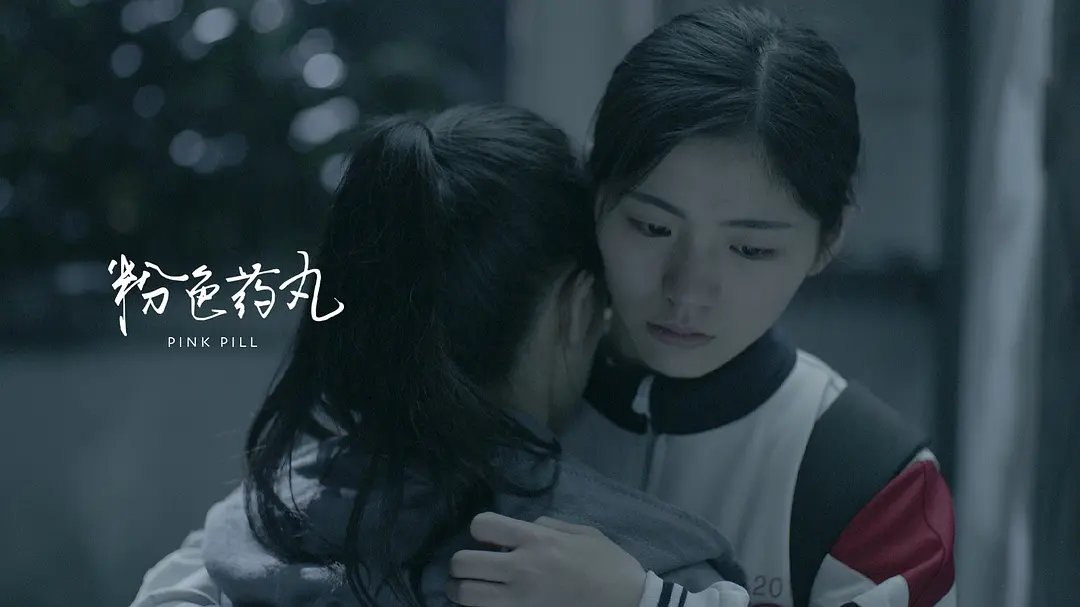
What struck me most was the film’s restraint. Every silent frame feels loaded with unsaid words, every lingering shot carrying emotions that can’t quite be voiced. It feels painfully real — not only in how it portrays queer youth under pressure, but also in how it exposes the misconceptions surrounding them. Instead of focusing on self-discovery, the film looks at how teenage peers view LGBT identities: the belief that a lesbian can be “cured” by dating a boy, or that queerness is a sickness born of loneliness. These are ideas planted in adolescence, made worse by a lack of sex education and open conversations about diversity. That honesty makes Pink Pill quietly devastating.
Sisterhood (2016)
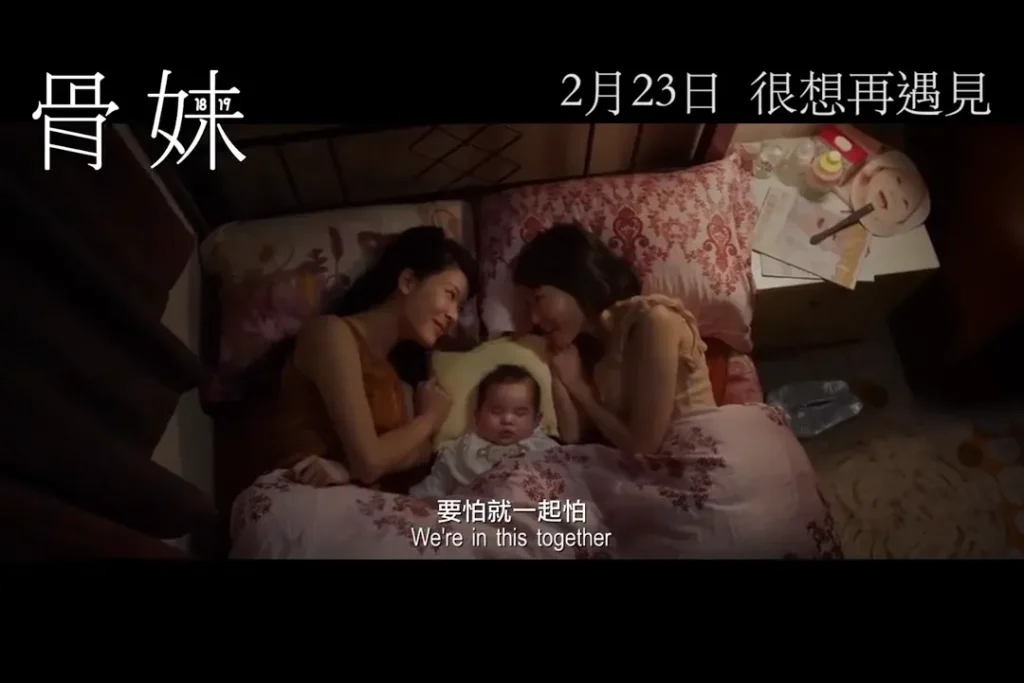
🎬 Release Year: 2016
📺 Where to Watch: Film Festivals, Limited Streaming
✨ A powerful exploration of memory and lost love set in 1990s Macau
👀 Why It’s Worth Watching: Set in the vibrant backdrop of 1990s Macau, this film follows Sei, who now runs a guesthouse in Taiwan with her husband. Her carefully constructed present life unravels when she discovers a missing person notice that brings back memories of her time working at a massage parlor with her close friend Ling-ling.
Through flashbacks, we see how the two women formed an intense bond while working together. The film beautifully captures the unique atmosphere of pre-handover Macau, using the impending political transition as a metaphor for personal transformation. The massage parlor setting provides an intimate space where friendship deepens into something more profound.
The story takes a poignant turn as we discover Ling-ling’s closely guarded secret, revealing that she never truly let go of Sei. It’s a powerful exploration of love, memory, and the lives we choose versus the lives we leave behind.
Make Up (2011)
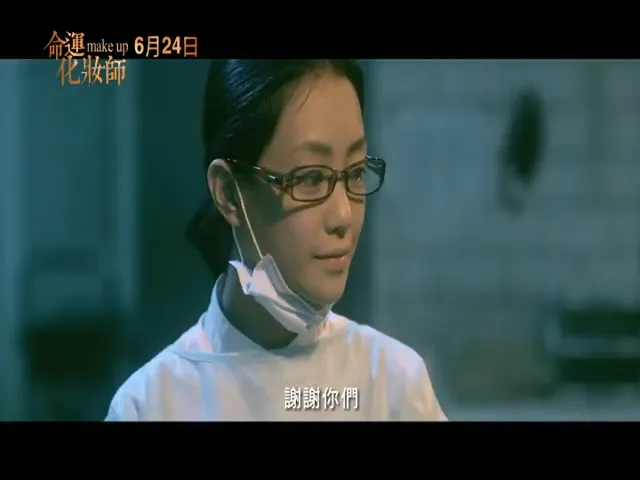
🎬 Release Year: 2011
📺 Where to Watch: Limited DVD Release
✨ A noir-tinged lesbian drama set in a mortuary
👀 Why It’s Worth Watching: This haunting psychological drama follows Min-siu, a mortuary makeup artist whose carefully ordered world is disrupted when she’s asked to work on the body of her former high school teacher, Chen Ting. As someone who has prepared countless bodies for their final journey, Min-siu usually maintains professional detachment. However, this assignment forces her to confront buried memories of her school days.
The story takes an intriguing turn when Chen Ting’s fiancé, Nie Chengfu, a psychiatrist struggling with grief, approaches Min-siu hoping to learn more about Chen Ting’s past life. What begins as a simple inquiry evolves into something far more complex as Nie Chengfu discovers that the relationship between Min-siu and Chen Ting wasn’t just that of student and teacher.
As Min-siu delves deeper into investigating Chen Ting’s death, she gradually uncovers the true circumstances behind her former teacher’s passing. The film masterfully uses the profession of mortuary makeup as a metaphor for how we present ourselves in life and death – some truths are painted over, while others refuse to stay buried.
This noir-tinged lesbian drama brilliantly combines elements of mystery, romance, and psychological thriller. The mortuary setting provides a unique backdrop for exploring themes of memory, hidden desire, and the masks we wear both in life and death.
Miao Miao (2008)

🎬 Release Year: 2008
📺 Where to Watch: Limited DVD Release
✨ A tender exploration of young love beyond typical teen tropes
👀 Why It’s Worth Watching: A tender exploration of young love that goes beyond typical teen romance tropes. Sandrine Pinna’s performance is unforgettable, especially in that final running scene with “The Meaning of Travel” playing. The film perfectly captures the essence of being seventeen and in love.
🔍 Similar Recommendations:
- Explore Coming-of-Age Lesbian Stories
Drifting Flowers (2008)
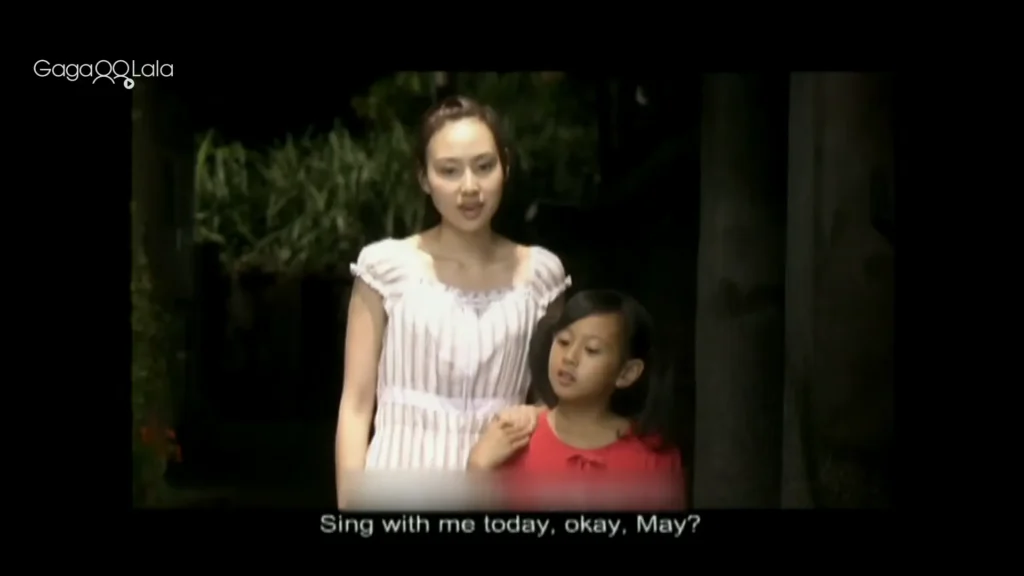
🎬 Release Year: 2008
📺 Where to Watch: YouTube
✨ Three interconnected stories about lesbian relationships across different life stages
👀 Why It’s Worth Watching: Three interconnected stories that explore lesbian relationships across different life stages. The film particularly shines in its portrayal of aging and sexuality – a topic rarely addressed in queer Asian cinema.
Spider Lilies (2007)

🎬 Release Year: 2007
📺 Where to Watch: Amazon Prime
✨ A story about memory, trauma, and ritual in a tattoo parlor setting
👀 Why It’s Worth Watching: Rainie Yang and Isabella Leong bring incredible chemistry to this story about memory, trauma, and ritual. The tattoo parlor setting perfectly symbolizes the permanent marks love leaves on us. It’s so much more than a simple romance!
Love’s Lone Flower (2005)
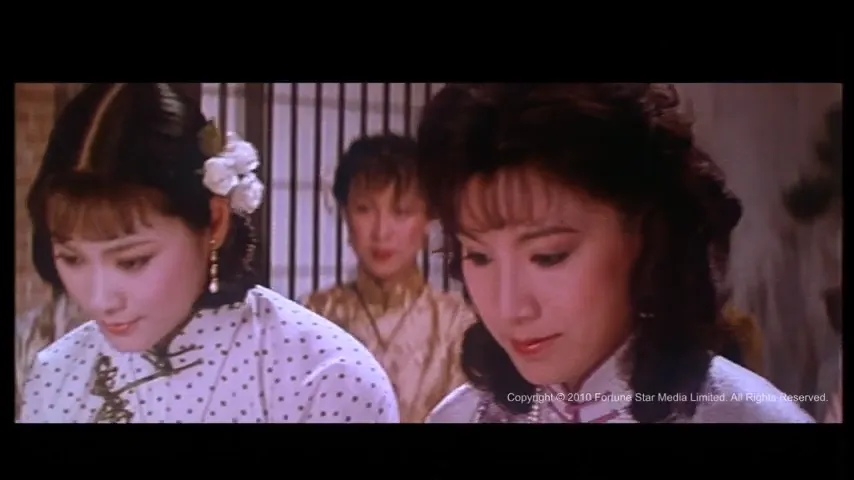
🎬 Release Year: 2005
📺 Where to Watch: YouTube
✨ A rare gem in Chinese television with an amazing soundtrack
👀 Why It’s Worth Watching: This TV series is a rare gem in Chinese television. Its compelling narrative about lesbian relationships in China is beautifully enhanced by an amazing soundtrack. Director Tsao Jui-yuan, adapting Pai Hsien-yung’s story, highlights how lesbians face unique challenges in a patriarchal society.
Butterfly (2004)

🎬 Release Year: 2004
📺 Where to Watch: Limited DVD Release
✨ Hong Kong’s first major lesbian film
👀 Why It’s Worth Watching: A milestone as Hong Kong’s first major lesbian film! Based on Chen Xue’s “The Mark of the Butterfly,” it follows Flavia rediscovering her lesbian desires through a chance meeting with a free-spirited singer.
🔍 Similar Recommendations:
- Check Out Pioneering Asian LGBTQ+ Cinema
Love Me, If You Can (2004)
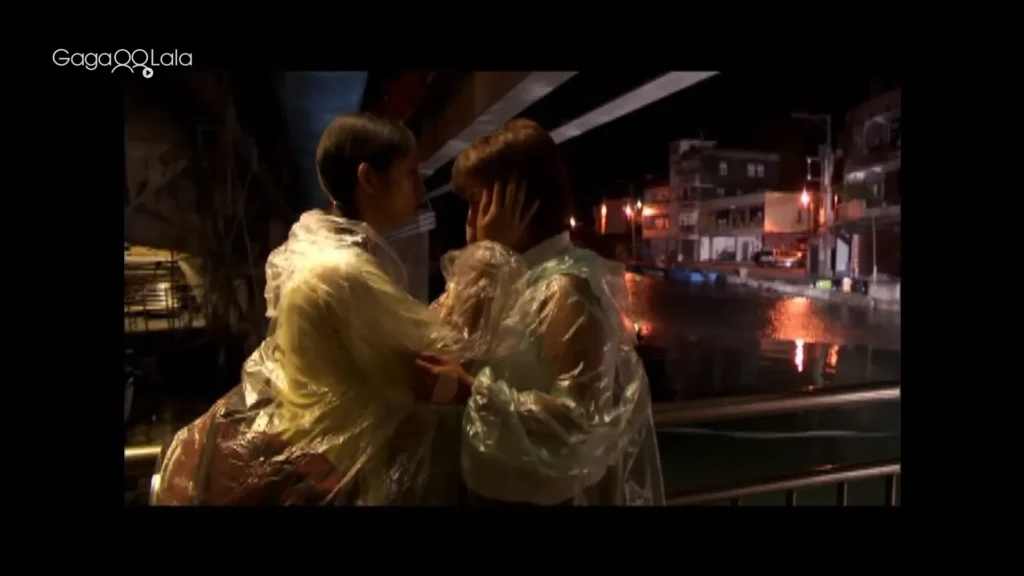
🎬 Release Year: 2004
📺 Where to Watch: Limited Release
✨ A fascinating story intertwined with Chinese folklore
👀 Why It’s Worth Watching: This fascinating story follows Xiao San, believed to be Liang Shanbo’s reincarnation, and her cousin Little Ying. Their relationship intertwines with Chinese folklore in unexpected ways, especially during the film’s climactic harbor scenes.
Saving Face (2004)
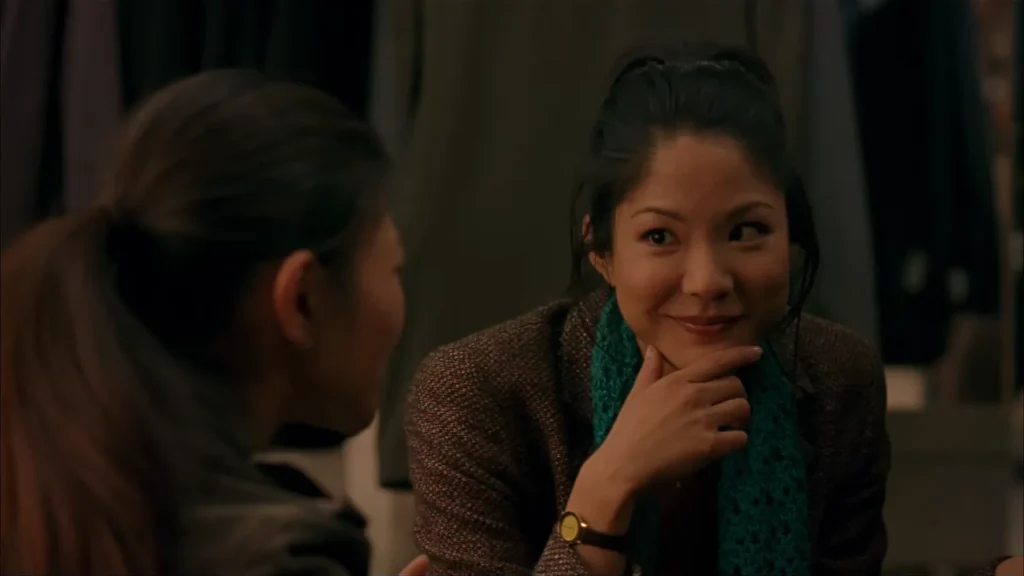
🎬 Release Year: 2004
📺 Where to Watch: Amazon Prime, Rent on Amazon
✨ A perfect example of how coming out can transform entire families
👀 Why It’s Worth Watching: One of my absolute favorites! Wil and Vivian’s romance runs parallel to Wil’s mother finding her own liberation from patriarchal constraints. It’s a perfect example of how coming out can transform entire families.
Blue Gate Crossing (2002)
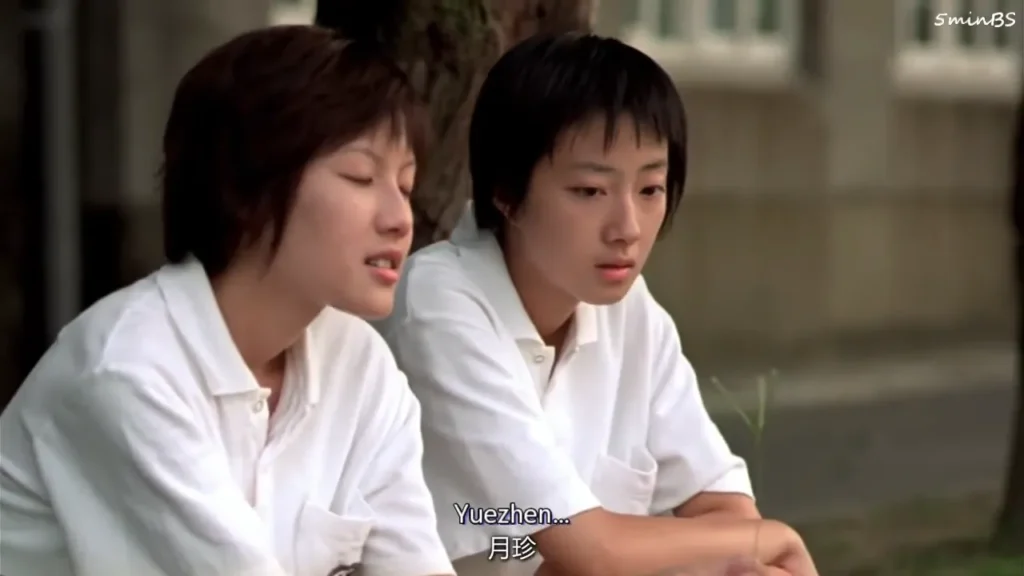
🎬 Release Year: 2002
📺 Where to Watch: Amazon Prime
✨ A film that transcends typical same-sex narratives
👀 Why It’s Worth Watching: This film transcends typical same-sex narratives to explore teenage anxiety and desire. Rather than focusing solely on sexual orientation, it captures the confusion and beauty of youth. The story resonates with anyone who’s ever felt uncertain about their feelings, whether for a friend or someone else entirely.
🔍 Similar Recommendations:
- Explore More Coming-of-Age Films
- Check Out Movies About Teen Confusion
Peony Pavilion (2001)
王祖贤x宫泽理惠-Rie-Miyazawa-0-29-screenshot-1024x576.webp)
🎬 Release Year: 2001
📺 Where to Watch: Limited Release
✨ A visually stunning film inspired by Kun Opera
👀 Why It’s Worth Watching: Joey Wong and Rie Miyazawa star in this visually stunning film that incorporates three songs from the Kun Opera “Peony Pavilion.” Director Yang Fan creates what feels like a living oil painting, enhanced by Brigitte Lin’s captivating voiceover. Rie Miyazawa’s performance is particularly memorable.
Fish and Elephant (2001)

At just 26, director Li Yu won the Elvira Notari Prize at Venice Film Festival with this debut. Using non-professional actors, she crafts a powerful exploration of relationships between women and men. Her TV host and documentary background shines through in the authentic storytelling.
🎬 Release Year: 2001
📺 Where to Watch: Amazon Prime
✨ A groundbreaking debut that won at Venice Film Festival
👀 Why It’s Worth Watching: At just 26, director Li Yu won the Elvira Notari Prize at Venice Film Festival with this debut. Using non-professional actors, she crafts a powerful exploration of relationships between women and men. Her TV host and documentary background shines through in the authentic storytelling.
Intimates (1997)
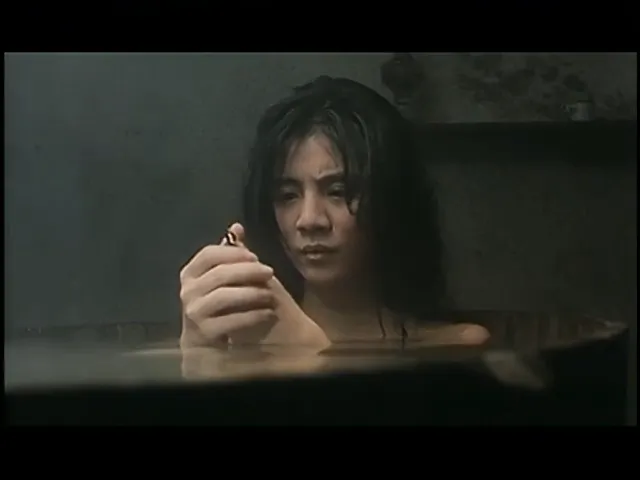
Liu Jialing delivers a performance rivaling Cate Blanchett, using symbols like jade pendants and feathers to represent women’s love. The scenes of Yuhuan processing her husband’s manipulation and Yihuan’s self-induced abortion are particularly powerful.
🎬 Release Year: 1997
📺 Where to Watch: Amazon Prime
✨ A powerful performance with symbolic imagery
👀 Why It’s Worth Watching: Liu Jialing delivers a performance rivaling Cate Blanchett, using symbols like jade pendants and feathers to represent women’s love. The scenes of Yuhuan processing her husband’s manipulation and Yihuan’s self-induced abortion are particularly powerful.
Murmur of Youth (1997)
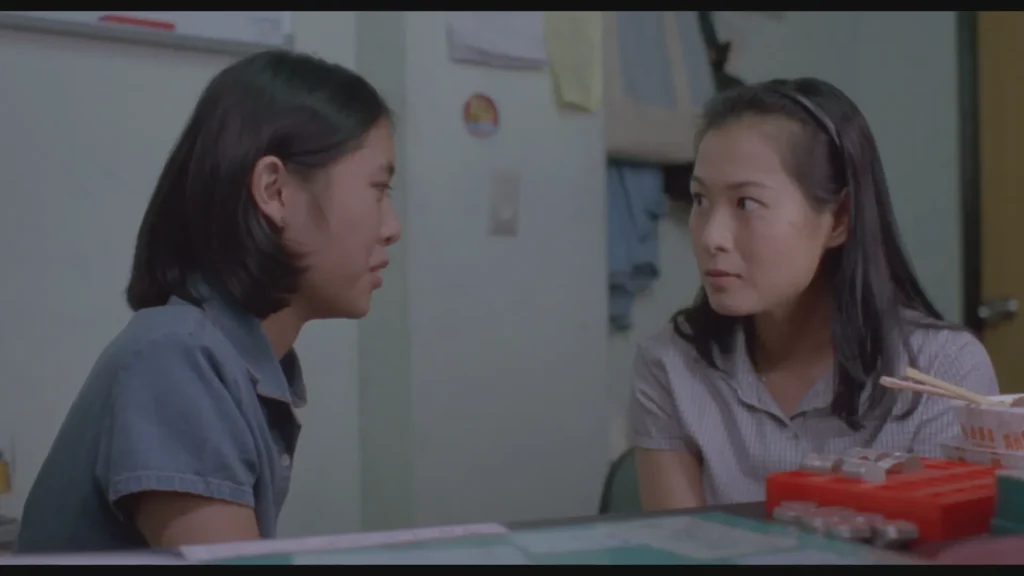
🎬 Release Year: 1997
📺 Where to Watch: YouTube
✨ A masterpiece of subtle storytelling
👀 Why It’s Worth Watching: A masterpiece of subtle storytelling that captures naturally evolving emotions. While some debate its classification as a lesbian film, the ending suggests deeper layers that reward careful viewing.
🔍 Similar Recommendations:
- Explore Japanese Yuri Films
Explore More Sapphic Content
Chinese lesbian cinema has come so far, from being invisible to increasingly mainstream. While mainland China still faces certain restrictions, filmmakers from Hong Kong and Taiwan continue pushing boundaries and telling our stories.
What’s really exciting is how these films have evolved from simple coming-out narratives to complex explorations of family, society, politics, and identity. Each new release adds another voice to our collective experience, showing that queer love has always been part of Chinese culture.
If you’ve enjoyed these films, don’t miss our guides to classic Asian lesbian movies and the latest Japanese GL series. For more sapphic content, check out the newest Thai GL releases and upcoming Korean dramas.
Remember to support these films when you can! Every view, every share, every discussion helps ensure more stories like these will be told. 🌈✨
👉 Also explore: Lesbian Movies | GL Series | Yuri Anime & Manga
🌍 By Country | 🎭 By Theme

